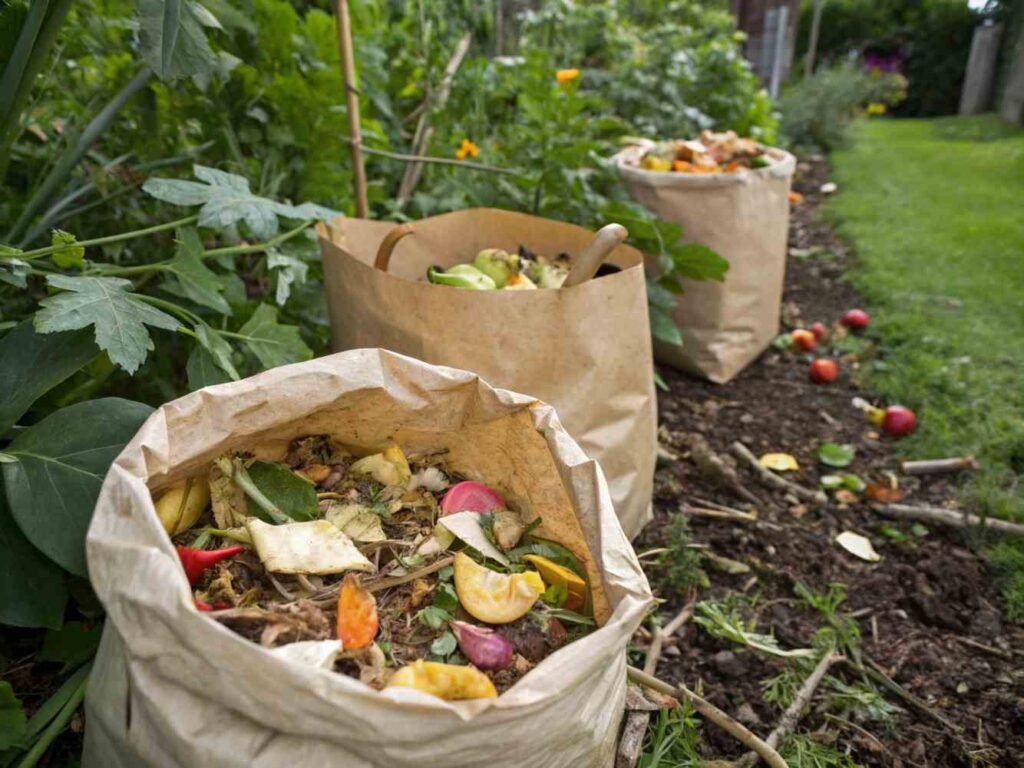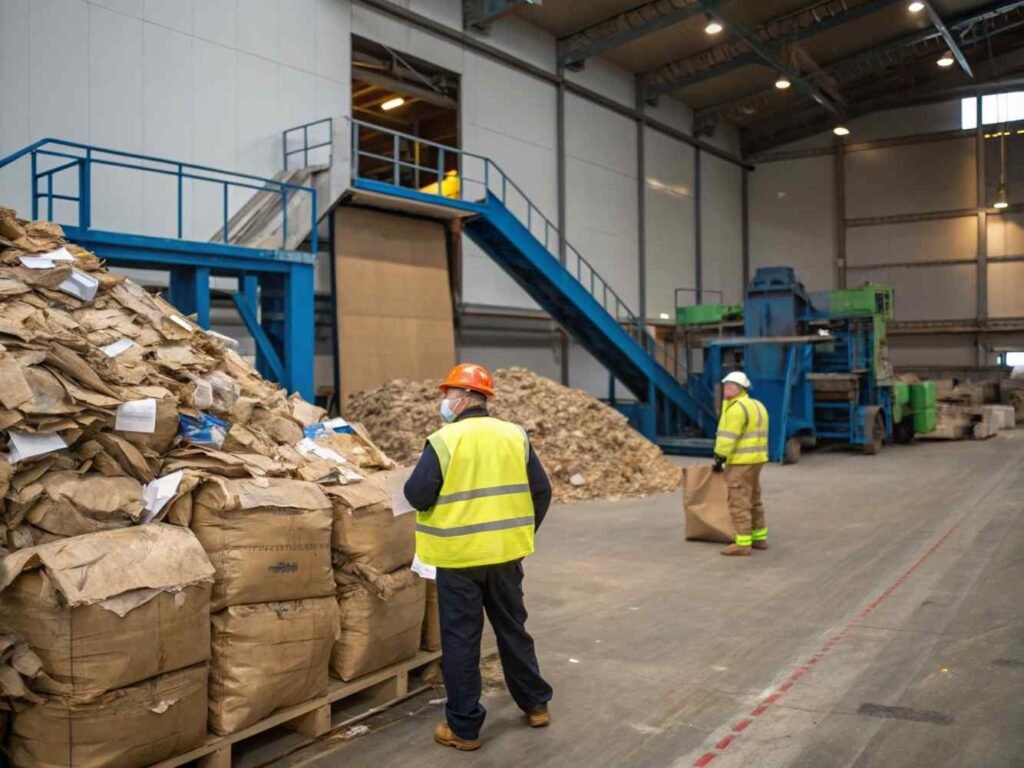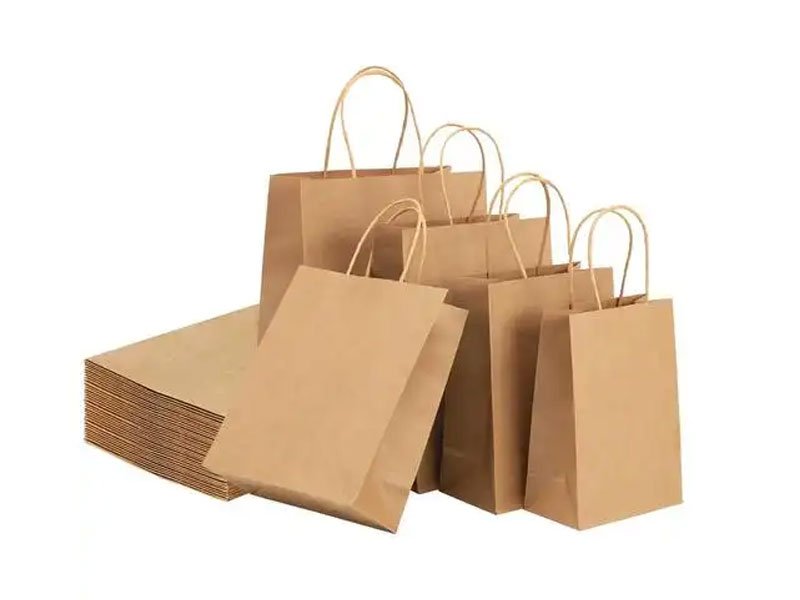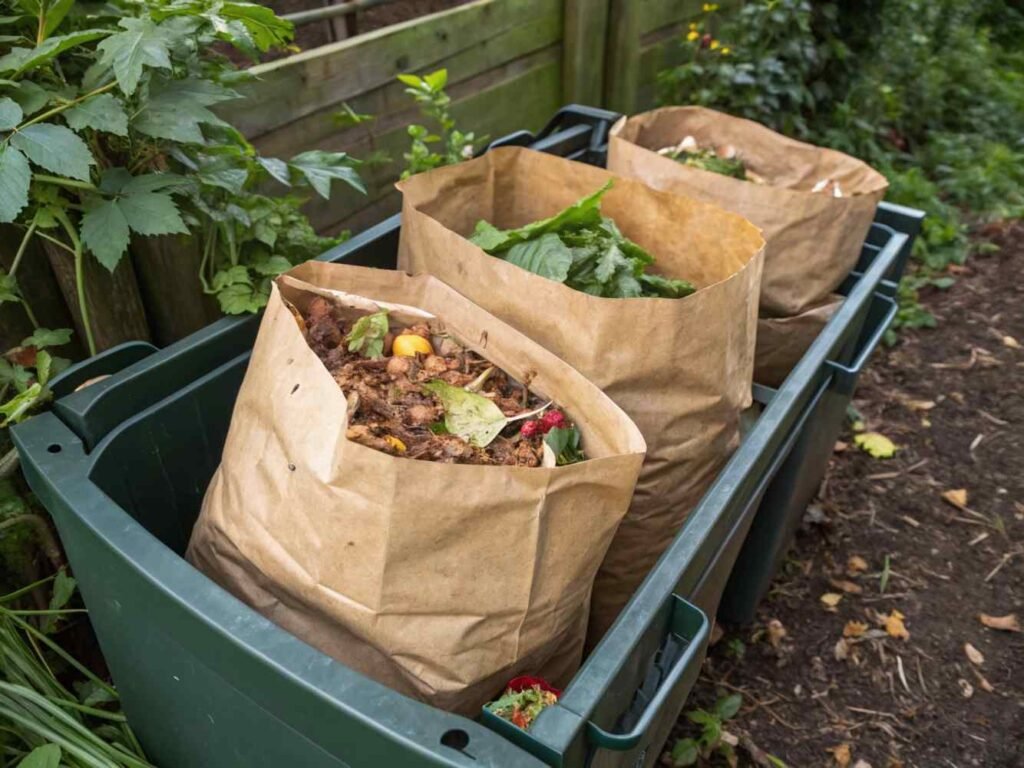Global temperatures are warming, people's environmental awareness is constantly increasing, and they are increasingly pursuing green and sustainable development. Paper bags are also widely used in our daily lives. So can paper bags be composted? Is it composted when a paper bag is thrown into a compost bin? Will the manufacturing process, coating and printing ink of paper bags affect the decomposition of paper bags in composting and have an impact on the environment?
This article will go into the truth about paper bag composting, which paper bags are best for composting, and which paper bags should never be used. Read on to learn more about environmental protection!

Are Paper Bags Compostable?
Not all paper bags are suitable for composting.
Paper bags are primarily made of cellulose fibers, a renewable natural resource. Under the right conditions, paper bags can biodegrade in a short period of time (about two to five months). Paper bags that use natural water-based pigments and starch-based adhesives will not cause harm to the environment during the degradation process.
Paper bags with smooth or waterproof coatings (coated, dyed, laminated or printed with synthetic inks) may contain chemicals that have a negative impact on the environment during the composting process. Therefore, it is important to confirm the material and composition of a paper bag before putting it in the compost pile.
Are Brown Paper Bags Compostable ?
Yes, brown paper bags are compostable, but there are some important conditions to consider.
When Brown Paper Bags Are Compostable:
Uncoated & Unprinted Bags
If the bag is plain, made from 100% paper, and free from any coatings (like wax or plastic), it's safe to compost.
Most grocery or lunch bags fall into this category.
Shredded for Faster Breakdown
Shredding or tearing them helps them decompose faster in both home and industrial composting systems.
Home & Industrial Composting
These bags can go into both types of compost setups. In home composting, they act as a "brown" carbon-rich material, balancing "green" materials like food scraps.
When Brown Paper Bags Are Not Compostable:
Plastic-Lined or Wax-Coated Bags
Bags with a shiny, slick feel usually contain plastic or wax lining, which prevents proper composting.
Heavy Inks or Colored Prints
Brightly colored logos or chemical-based inks may contain toxins that are not safe for compost.
Grease-Stained Bags (like from takeout food)
Small amounts of grease are usually okay, but heavy oil or food residue can attract pests or slow decomposition.
Are Paper Grocery Bags Compostable ?
Yes, most paper grocery bags are compostable, but it depends on their material and any added coatings or inks.
Compostable if:
- Made from unbleached, uncoated kraft paper
- No plastic lining or glossy finish
- No heavy food residue, oils or synthetic labels
- Using soy-based or water-based inks (often printed with "eco-friendly" labels)
- These bags break down naturally in both home and industrial composting systems, converting to valuable organic matter in as little as 2 to 6 weeks under the right conditions.
Not compostable if:
- Waxed, laminated or plastic coated
- Contains foil, synthetic glue or chemical dyes
- Applied with non-biodegradable stickers or tape

How to Compost Paper Bags at Home
Incorporating paper bags into your home composting system can effectively reduce the amount of waste and provide nutrient-rich soil amendments for your garden. Here are the specific steps:
-
Shred the paper bag: Tearing the paper bag into small pieces will help speed up the decomposition process.
-
Mix the composting materials: In the compost pile, paper bags are considered "brown" materials rich in carbon. To keep the compost balanced, add nitrogen-rich "green" materials such as kitchen scraps or fresh grass clippings.
-
Maintain proper humidity and ventilation: Ensuring that the compost pile maintains proper humidity and ventilation promotes microbial activity and speeds up the decomposition process.
-
Turn it regularly: Turning the compost pile every once in a while will help even decomposition and prevent odors.

Composting Paper Bags in an Industrial Facility
Home composting is great, but what if you’re using a municipal green bin?
Many cities accept paper bags in their curbside composting programs—but always check local guidelines. Industrial composting facilities run at higher temperatures and can handle slightly tougher materials (like light wax coatings).
Still, they don’t want plastic-laminated bags any more than your backyard pile does.

Paper Bags: Compost, Recycle, or Trash?
Plain Brown Paper Bags
These are the composting MVPs. No coatings, no slick finishes, just raw, recyclable kraft paper. They tear easily, absorb moisture, and provide carbon-rich "browns" to balance out your compost.
If it crumples softly, tears like a dream, and feels matte (not shiny), it’s probably compost-safe.
Waxed or Coated Paper Bags
Here’s where things get murky. Some sandwich or takeout bags are lined with wax or plastic to resist grease. If it feels glossy or water-resistant, pause.
Natural wax coatings? Natural wax coatings?
Usually fine.
Plastic lining?
Not compostable.These bags might look paper-ish, but they don’t break down properly and can leach microplastics or unwanted chemicals into your compost.
Printed or Colored Paper Bags
Got a bag with bright logos, glossy branding, or a festive design? Watch out. Brightly dyed paper can contain heavy metals or non-biodegradable ink. While soy- or water-based inks are fine, it’s hard to tell just by looking.
When in doubt, rip a corner off. If the print rubs off on your fingers, that’s a red flag.

What to Look out for When Composting Paper Bags
Avoid coated paper bags: As mentioned earlier, paper bags with a smooth or waterproof coating may contain harmful chemicals and are not suitable for composting.
Remove non-paper components: Make sure there are no plastics, metal staples or other non-paper materials on the paper bags, which will not decompose and may contaminate the compost.
Avoid grease contamination: Paper bags contaminated with grease or food residue may attract pests and affect the quality of the compost, so they should be avoided.
Are Paper Bags Biodegradable ?
Yes, paper bags are biodegradable.
They are made from natural plant fibers like wood pulp, which means they can break down naturally in the environment within a few weeks to a few months, depending on conditions like moisture, temperature, and thickness.
For more information, see this article:
FAQ
Can I put paper bags in the compost bin?
Yes, as long as they’re not coated with plastic or printed with heavy-duty ink. If they’re plain and tear easily, go for it.
Are regular paper bags compostable?
"Regular" usually means brown kraft paper bags, and yes, those are typically compostable. But always inspect for coatings or hidden laminates.
Is it better to compost or recycle paper bags?
Tricky one. Composting is great for soiled bags (like greasy sandwich wraps). Recycling works best for clean, dry bags. The real winner? Whichever keeps the bag out of a landfill.
What kind of paper cannot be composted?
Glossy, waxed, plastic-lined, heavily printed, or foil-stamped paper. Basically, if it looks too fancy or waterproof, it doesn’t belong in your compost bin.
Are white paper bags compostable?
That depends. If they’re plain white paper bags without any plastic coating or heavy printing, yes, they’re compostable. But many white paper bags are bleached or dyed, and that might raise concerns about chemical residues. When possible, go for unbleached or brown paper versions.
Can brown paper bags go in green bin?
Absolutely. Brown paper bags are one of the best things you can add to your green bin—as long as they’re clean and free of coatings. They add valuable carbon to the compost stream and help absorb excess moisture from food scraps.
Are brown paper bags recyclable?
Yes, most brown paper bags are recyclable. Just make sure they’re clean and dry. If they’re greasy or food-stained, skip the recycling and toss them into your compost instead.





